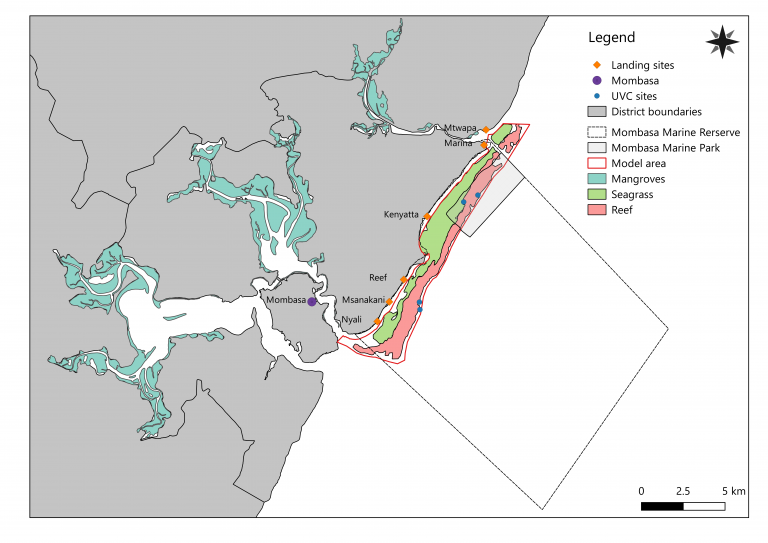
Anthropogenic and ecological impacts affect not only the environment, but also the livelihoods of the fishers and communities reliant on them. It is, therefore, crucial to study the entire chain of well-being for an ecosystem, from changing environmental conditions, to the impacts of humans and social processes, to the effect of high-level policies and ecosystem services. As part of the Sustainable Poverty Alleviation from Costal Ecosystem Services project (SPACES), this research addresses the important question: how can we best develop sustainable, effective fisheries decisions while preserving the livelihoods of fishers and their dependents?
This volume investigates the consequences from the effective ban of different fishing gears at Nyali-Mombasa, a site on the Kenyan coast. Using ecosystem modelling, it explores different scenarios for evaluating high-level impacts of various intervention or management decisions, as well as the resulting socio-economic consequences on relevant communities. The work has mapped various aspects of the Nyali-Mombasa ecosystem through the creation of a food web model, reproducing and quantifying main energy flows, and holistically investigating dominant food-web dynamics, and the role of fisheries on the system. With the exception of a simple Maputo Bay model (Silva et al. 1993), this research is the first to develop an Ecopath model for a coastal area in East Africa.
Specifically, the work described herein is intended as a preliminary step towards the estimation of the broad community, ecological, and economic effects of anthropogenic and ecological impacts on Kenyan coral reef ecosystems. Specifically, we sought to investigate the ramifications of the effective ban of different fishing gears at two specific locations along the coast of Kenya: Nyali-Mombasa (described here) and Vanga-Shimoni (described in a separate report). This initial step consists of the construction of a trophodynamic ecosystem model (using the freely available software Ecopath with Ecosim www.ecopath.org) for the locations of interest. Next steps will include simulations which might inform fisheries management decisions, as well as the identification of gaps in the data, and guidance for future research programmes.
- Ecosystem modelling to support fisheries management efforts in the Nyali-Mombasa area, coastal Kenya
- Fisheries Centre Research Reports page
Tags: Colette Wabnitz, CORU, East Africa, Ecopath with Ecosim (EWE), faculty, FCRR, fishing gear, food webs, IOF Research Associates, Kenya, Modelling, Publications, Research, William Cheung